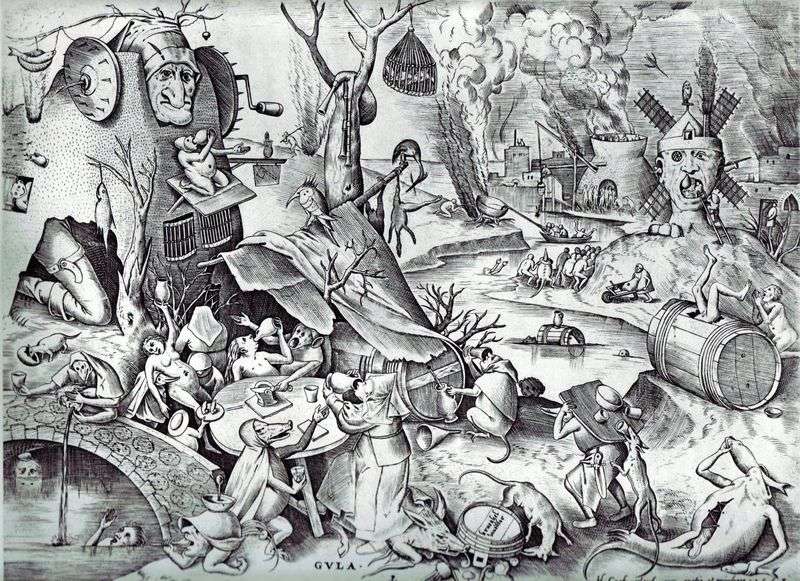
Engraving of the artist Peter Bruegel “Gluttony” or “Allegory of gluttony” from the series “Defects.” Gluttony is the most “natural” of passions. Everyone can experience hunger and thirst. But with excesses, the natural becomes unnatural, hence, vicious.
Satiety and immoderation in the diet, according to the observation of the holy fathers, arouse the carnal movements and impulses that lead, with incontinence to the passion of fornication. “If you love abstinence, you will control the demon of fornication,” said the Monk Ephraim the Syrian. Gluttony is immoderation and greed in eating, leading a person to a beastly condition. In Christianity, gluttony is one of the seven deadly sins. Binge eating is one of the forms of a wider defect – voluptuousness.
In antiquity it was believed that gluttony causes both bodily suffering and the suffering of the soul, since the object of joy of the sweetheart is not a true good. Fighting the defect of gluttony involves not so much strong-willed suppression of desires for food, as thinking about its true place in life.
In modern European culture, gluttony is defined more by medical prescriptions than by moral considerations. In modern Western society, according to statistics, 50% of the population suffers from overweight – half a billion people. This fact gives grounds to consider “civilized society” – society “glutton”.
Insatiable craving for food, gluttony is the same sin as the murderer’s desire to commit another crime or the desire of an adulterer to commit another debauchery, or the thief’s desire to steal something, since gluttony is a suicidal way of life and a clogging of the human body that leads to obesity, which in turn is as dangerous to the body as smoking a cigarette, drinking alcohol or drugs.
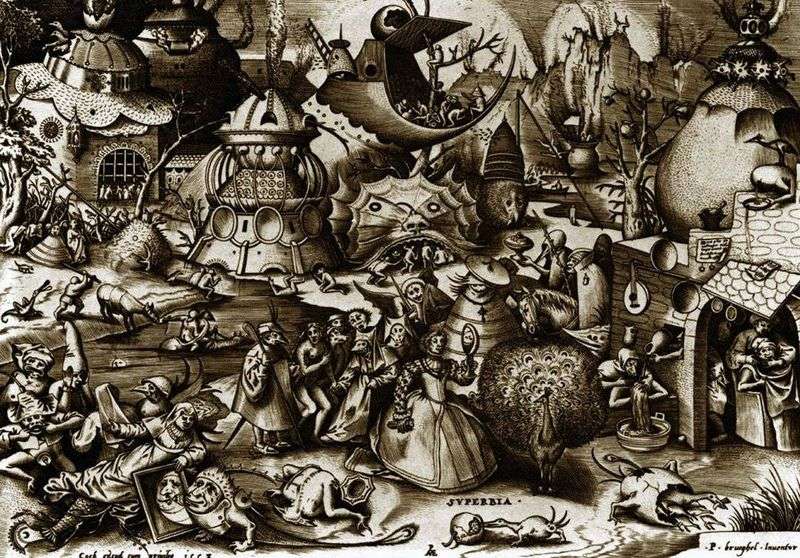 Pride. Engraving by Peter Brueghel
Pride. Engraving by Peter Brueghel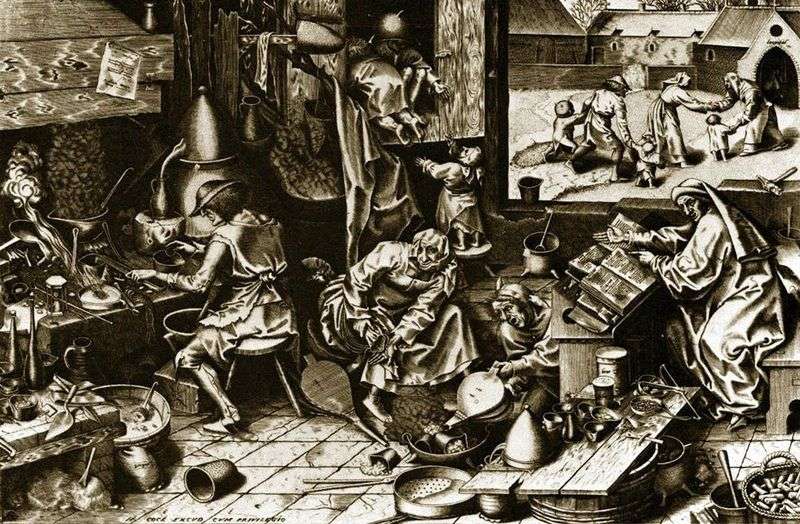 Alchemist. Engraving by Peter Brueghel
Alchemist. Engraving by Peter Brueghel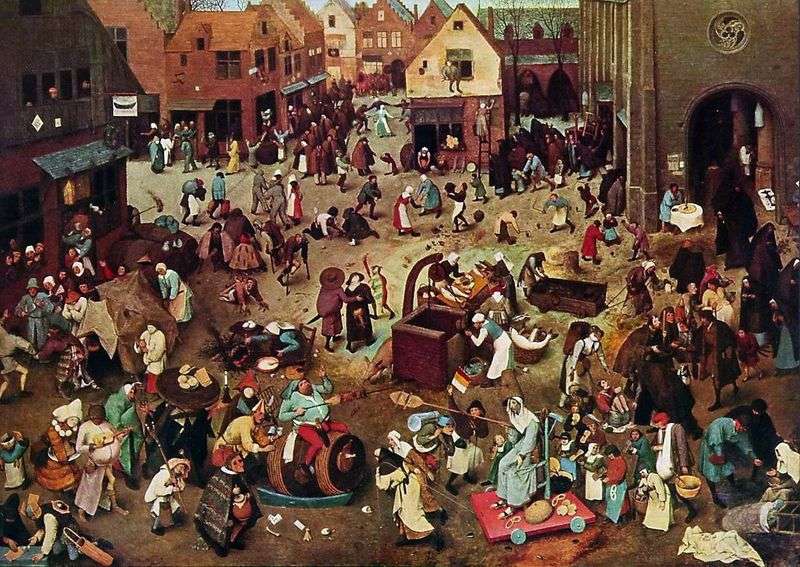 Carnival and Post by Peter Brueghel
Carnival and Post by Peter Brueghel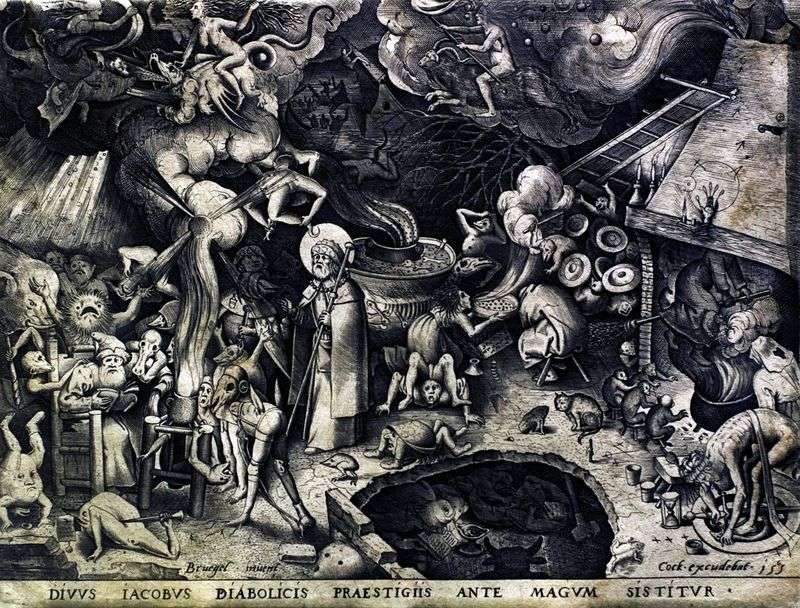 Saint Jerome. Engraving by Peter Brueghel
Saint Jerome. Engraving by Peter Brueghel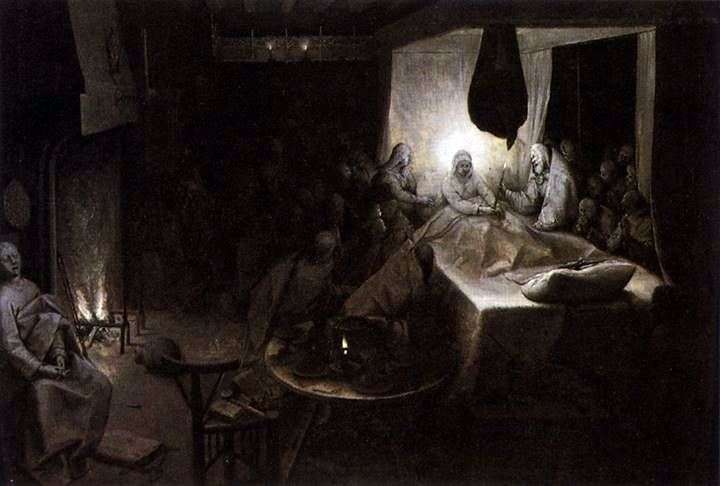 Assumption of the Virgin by Peter Brueghel
Assumption of the Virgin by Peter Brueghel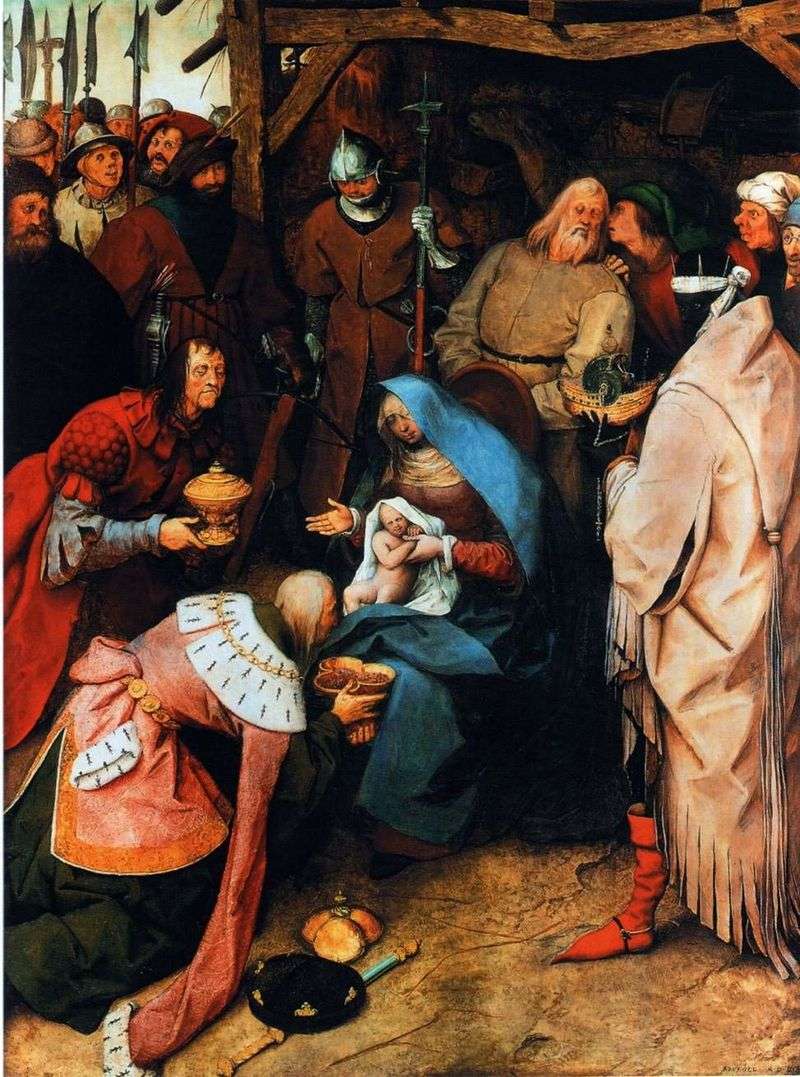 Adoration of the Magi by Peter Brueghel
Adoration of the Magi by Peter Brueghel On the way to Egypt by Peter Brueghel
On the way to Egypt by Peter Brueghel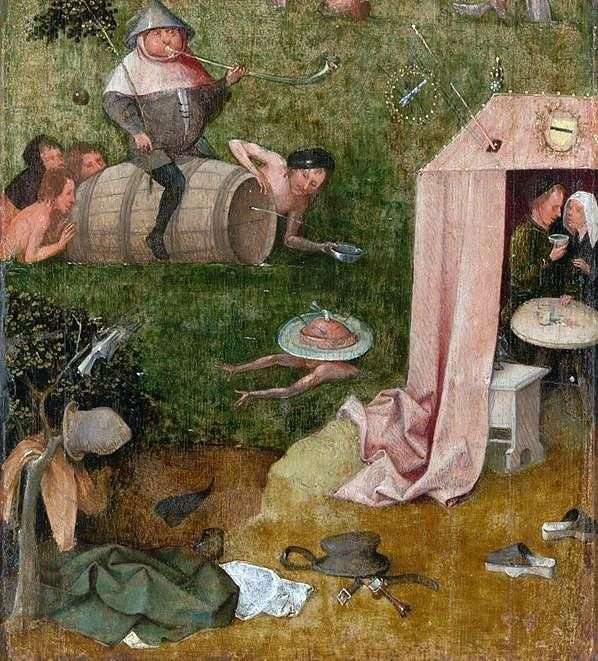 Allegory of gluttony and lasciviousness by Hieronymus Bosch
Allegory of gluttony and lasciviousness by Hieronymus Bosch